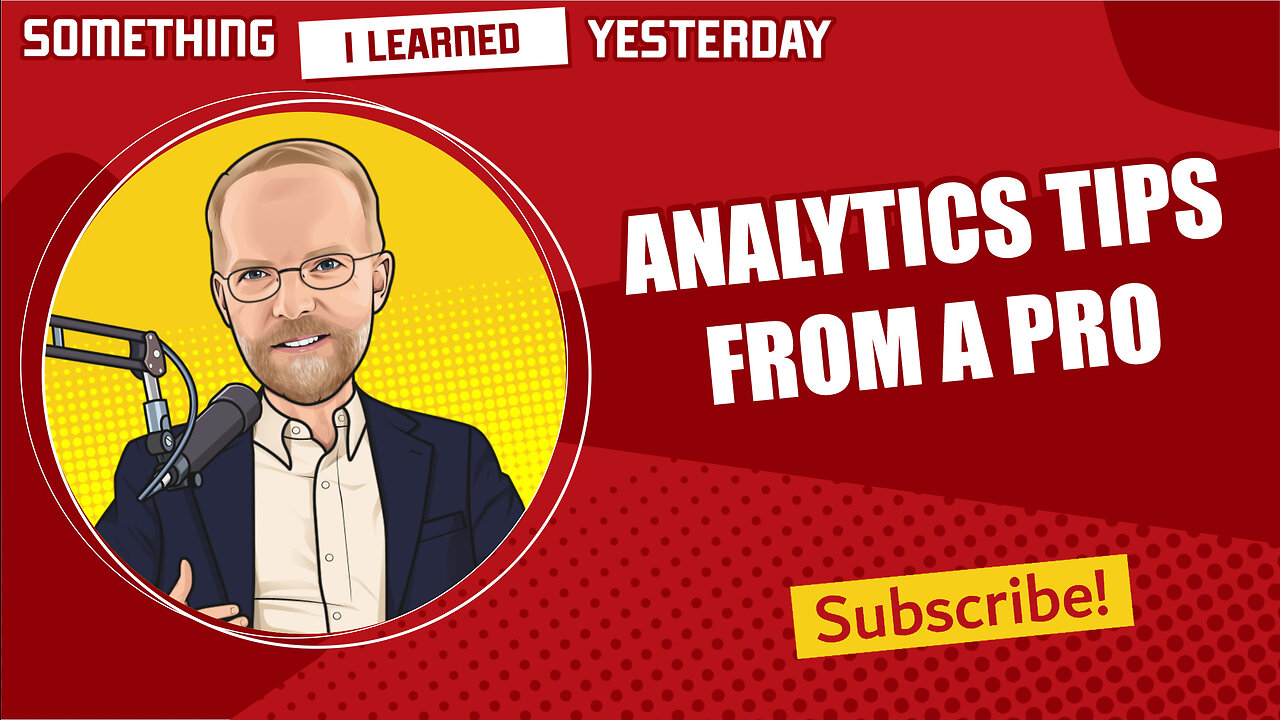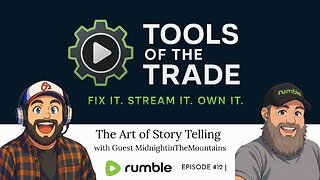Premium Only Content

Analytics tips from a data pro
Here's a partial transcript of an interview with Michelle Drewek of Lessiter Media.
[Michelle] Thank you for having me, Greg.
[Greg] You looked at what I had to say about “data without customer feedback,” and you had three very interesting observations. The first had to do with average session duration. Can you unpack that a bit?
[Michelle] So when I came more into the data role within my position here, I was looking at some of the legacy stats that our upper management team is looking at. And one of them that I questioned a bit was how they were looking at the “average time on page.”
(This would be a universal analytics metric for those who are working in the GA4 world.)
It would tell you the average time on page as an average for your site, but you could see the page by page breakdown, and I questioned why we were looking at that because average time on page could vary drastically for a video versus a few paragraphs or an entire feature, and the number isn’t telling you much.
So we switched that up and I said let’s look at the average session duration, trying to keep people on the site for a longer period of time – be that through multiple articles or through one extensive article. That helped us make some decisions about content – whether long or short form was working better for us.
But now that we’re in the GA4 era, we have a new “average engagement time” metric, which is a lot more helpful in getting to a more narrative-based number.
But again, you still need to have some of that context. Context is everything when it comes to data. If you’re going off straight numbers, you’re not really going to learn much about how your content is performing.
[Greg] So you were able to use that to adjust how you were doing content on the site.
[Michelle] Yes, absolutely. Over time you’ll see shorter form worked great at one point, but then all of a sudden people wanted longer form content.
Of course SEO plays into that too. Now you want to have your short video but also the long form content to help with Google. So it really helps to evolve your strategy along a bunch of different parameters.
[Greg] You also have an interesting way of qualifying stats on page views. What is it that you do?
[Michelle] I’m always quantifying page views month over month and year over year, but we could have one article that performs really well one year, and that could make the metrics skyrocket and make it look like this year we’re knocking it out of the park.
That’s where I take the data and say, hold back, let’s take this one out and look at our average page views without the anomaly.
Then we can look at things like seasonality. There might be certain topics or certain industries that play well. Then you identify an article that’s strong seasonally, and you can plug that into next year’s strategy and find a couple more topics like that while the energy is hot behind that topic.
That can help you in terms of context and knowing how the numbers are fluctuating, but also why they’re fluctuating, and then making decisions off of that.
***
The full interview can be seen here.
-
 4:14:26
4:14:26
Grant Cardone
6 hours agoHow to Buy Real Estate With NO Money Down (LIVE Training With Grant Cardone)
89K4 -
 LIVE
LIVE
AlaskanBallistics
13 hours ago $1.66 earnedShooting the WhisperStrike WT30 Live!
122 watching -
 19:53
19:53
MetatronHistory
19 hours agoRome VS Greece - Ultimate Clash of Civilizations Explained
44.4K12 -
 LIVE
LIVE
The Big Mig™
5 hours agoThe Big Mig Show's Greatest Hits w/ Americas Future, Karmageddon, Operation Gideon,..
173 watching -
 1:32:33
1:32:33
VapinGamers
5 hours ago $5.95 earnedTools of the Trade - EP12 The Art of Story Telling with MidnightinTheMountains - !rumbot !music
29.3K2 -
 3:09:50
3:09:50
SOLTEKGG
4 hours ago🔴LIVE - Battlefield 6 - Going Pro in RED SEC
24.9K1 -
 5:19:03
5:19:03
Midnight In The Mountains™
6 hours agoThe Midnights Play Arc Raiders | Loot Scoot and KILL | Crypto Wallet up n running GO JOIN THE BETA!
20.5K3 -
 53:25
53:25
X22 Report
7 hours agoMr & Mrs X - Trump Is Using The Same Tactic As Our Founding Fathers To Rebuild America - EP 17
96.1K33 -
 3:15:31
3:15:31
PudgeTV
4 hours ago🟣 Arc Raiders - Gaming on Rumble | Going Topside w My Daughter’s Husband
16.8K1 -
 2:05:43
2:05:43
LFA TV
1 day agoRUMBLE RUNDOWN WEEK 7 with SHAWN FARASH 11.22.25 9AM
150K12